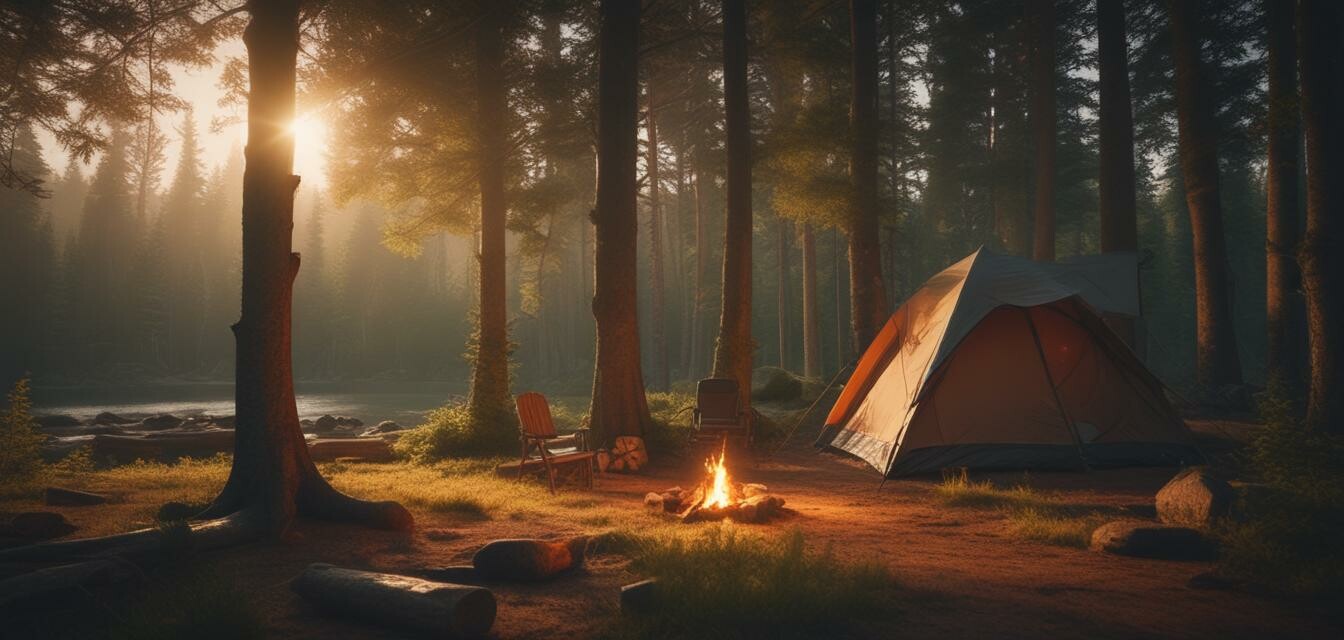
Solo Camping: Tips for First-Time Lone Adventures
Key Takeaways
- Prioritize safety and preparation for your solo trip.
- Choose a suitable campsite that matches your skill level.
- Plan activities to enjoy your time alone effectively.
- Consider your comfort and shelter needs for the trip.
- Be mindful of wildlife and environmental conditions.
Are you gearing up for your first solo camping adventure? Whether you are looking to disconnect from the hustle and bustle or simply want to challenge yourself, solo camping can be an incredibly rewarding experience. However, it does come with its unique set of challenges and considerations. In this article, we will explore essential tips and best practices that will help you prepare for a safe, enjoyable, and fulfilling solo camping trip.
Preparation is key
Preparation is crucial when it comes to solo camping. Proper planning can make the difference between a successful adventure and a stressful experience. Here are some steps to ensure you are well-prepared:
- Research your destination: Understand the terrain, weather conditions, and any permits required for your selected campsite. Gathering this information will enable you to pack appropriately.
- Inform friends or family: Always let someone know your plans, such as your itinerary and estimated return time. This is an important safety measure when camping alone.
- Pack essential gear: Make a checklist of necessary camping gear, and be sure to include items specific to your camping style, like cooking equipment or navigation tools. You can check out our guides on Backpacks & Carriers and Safety & Navigation for detailed suggestions.
Choosing the right campsite
Your choice of campsite can significantly affect your overall experience. Here are some factors to keep in mind:
- Accessibility: Opt for a location that is easily accessible, especially if you are new to camping. You don't want to be exhausted before your adventure even begins.
- Safety: Avoid isolated areas with difficult terrain. Look for campsites that have other campers nearby if that provides you with more peace of mind.
- Scenic value: Choose a spot that you find visually appealing. You may be spending a lot of time there, so it should inspire relaxation.
Safety considerations
Camping solo comes with the responsibility of ensuring your safety. Here are some vital tips:
- Stay aware of your surroundings: Regularly check on your environment to identify potential hazards, such as wildlife or unstable terrain.
- Practice fire safety: Always follow fire safety guidelines when using a campfire. Ensure it’s completely extinguished before leaving the site.
- Be prepared for emergencies: Carry a first-aid kit, know the basics of wilderness first aid, and carry a whistle or a signal mirror for emergencies.
Embrace solitude
Many people find solitude in nature rejuvenating. However, during a solo camping trip, it's essential to engage in activities to make the most of your time:
- Journaling: Keep a journal to document your thoughts and experiences. This can help you reflect and appreciate your journey.
- Photography: Capture the beauty of nature through your lens. You may find creative inspiration during your trip.
- Go hiking: Take the time to explore the surrounding trails. A good hike can offer both excitement and tranquility.
Comfort and shelter
Ensuring your comfort during your solo camping trip is essential. Here’s how to enhance your shelter setup:
| Item | Description | Why it matters |
|---|---|---|
| Tent | A lightweight, easy-to-setup tent. | Provides shelter from the elements. |
| Sleeping Bag | Choose a sleeping bag suitable for the season. | Ensures you stay warm and cozy at night. |
| Camping Pad | A pad for insulation and cushioning. | Makes sleeping more comfortable by providing a barrier between you and the ground. |
Respect nature
Finally, it's important to respect the natural environment by practicing Leave No Trace principles. This includes:
- Properly disposing of waste
- Staying on marked trails
- Minimizing campfire impact
Conclusion
Embarking on a solo camping adventure can be one of the most liberating experiences of your life. By carefully preparing, choosing the right campsite, prioritizing safety, and embracing the solitude, your first solo trip can develop into an unforgettable adventure. For more tips and tricks related to camping, check out our Camping Tips and Tricks section.
Pros
- You get to enjoy complete freedom in your activities.
- A chance to reconnect with yourself away from distractions.
- Enhanced outdoor skills and self-reliance.
Cons
- Potential safety risks without companions.
- Requires deeper preparation and planning.
- May feel lonely at times.